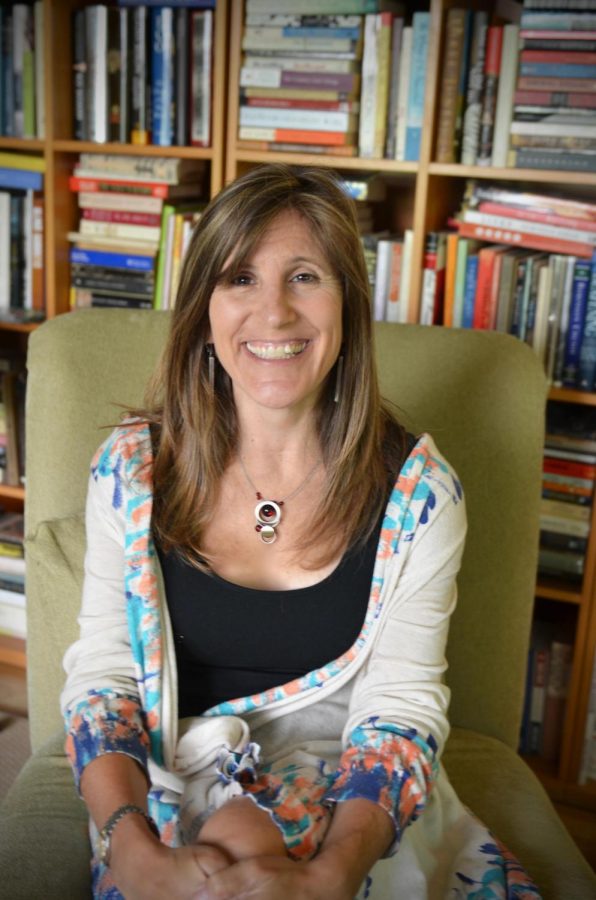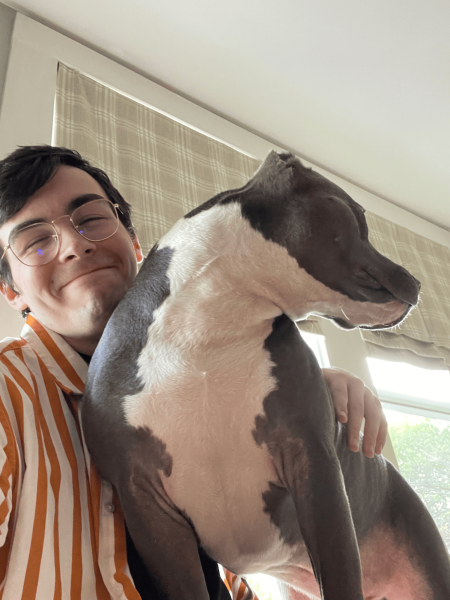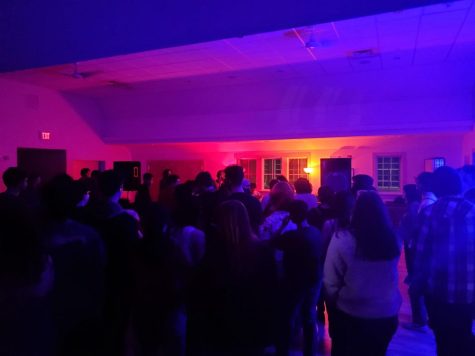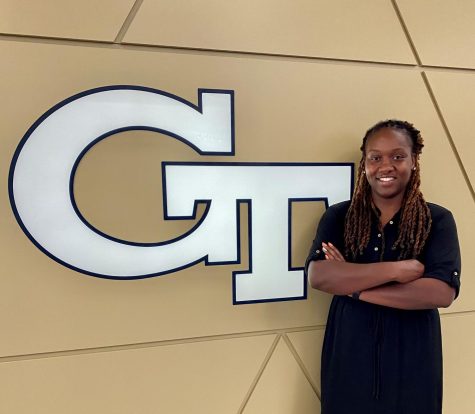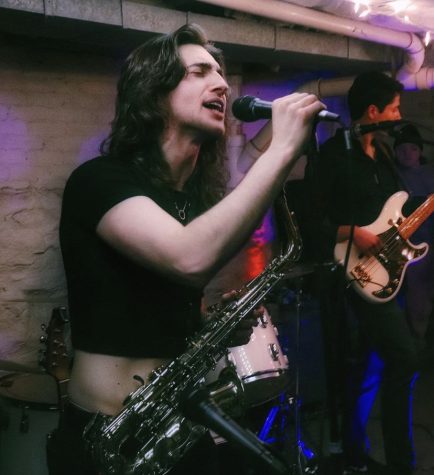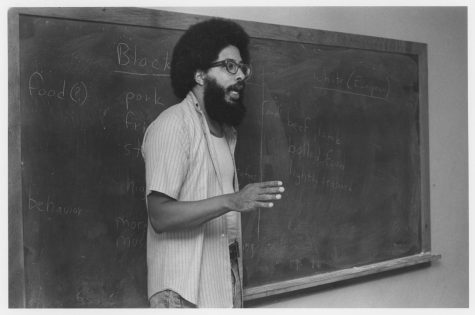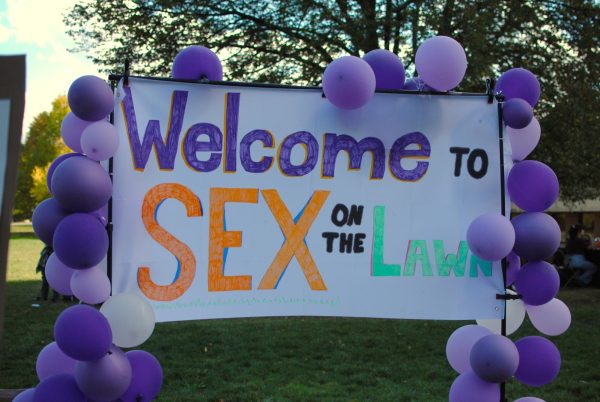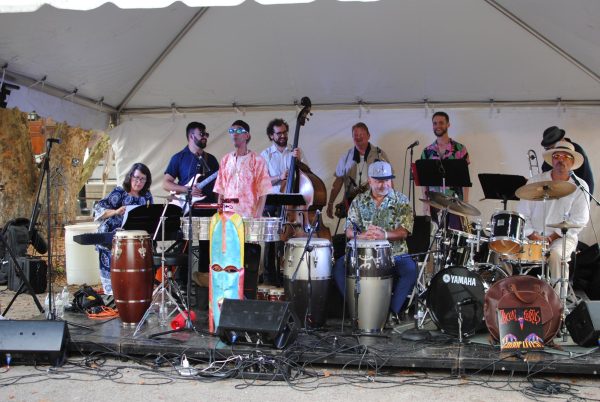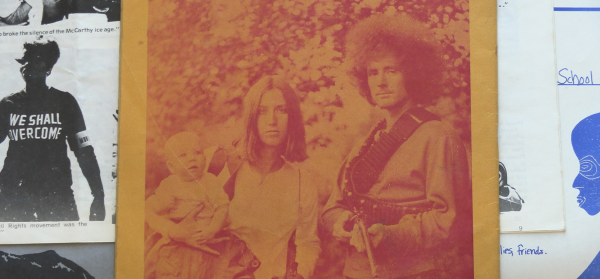Classrooms one day, correctional facilities the next
Professor Laura Ciolkowski is reinventing the learning environment through art and theatre.
AMHERST, Mass. — Nestling into her seat, Laura Ciolkowski pulls out a box and points at a doughnut covered in Fruity Pebbles. “Do you want a doughnut?” she asks smiling.
This animated, playful and warm energy doesn’t just exist within the confines of Ciolkowski’s office. It’s her core as a women, gender and sexuality studies professor at the University of Massachusetts Amherst. When she’s not actively participating with students in her WGSS class discussions, Ciolkowski can be found engaging with people who are incarcerated through abstract and performative activities. “They’re not prisoners when they enter the classroom,” explains Ciolkowski. “They are individuals with thoughts and dreams and ideas about literature.
“The space of the prison classroom really requires you to think differently about teaching,” continues Ciolkowski. “So it took a lot of thought about really how to create a learning community and a community of students, as opposed to prisoners.” Ciolkowski is among a growing number of educators and community organizers who follow the methods created by the Theatre of the Oppressed, a collection of Brazilian theatre activities created by Augusto Boal during the 1970s. Through TO, Ciolkowski is dismantling and reconstructing the traditional classroom into a learning experience in her courses both at UMass and in prison.
Although she received her BA in English and comparative literature from Columbia University and her MA and Ph.D. in literature from Brown University, that didn’t stop Ciolkowski from branching off into the field of WGSS. She explains, “It wasn’t really a transition. … they’re totally intertwined.” As for prison, Ciolkowski says her work in sexuality studies, critical race studies and gender studies simply made prison “a logical connection.” In fact, it was through Columbia’s Center for Justice that Ciolkowski began teaching in prison.
Despite receiving little to no guidance, Ciolkowski says teaching in prison is “challenging in the best way.” One of the biggest challenges being the Department of Corrections’ vetting process.
“You can’t bring in anything,” explains Ciolkowski. “Everything has to be vetted, so you can’t decide, ‘Oh, I saw this great article and I want to include it in the work that we do this week.’” However, Ciolkowski explains that these restrictions only push her to review and redevelop her teaching methods. This attitude, combined with her passion for radical pedagogies are why Ciolkowski uses art and theatre in the classroom.
Like most educators, Ciolkowski has to consider that her students come from a vast array of backgrounds and experiences when she plans her lessons and assignments. In prison however, Ciolkowski says it’s crucial to acknowledge the trauma that many people in prison have experienced, especially within the learning environment. “That’s not to say that we all — the rest of us, or many of us — carry with us histories of trauma,” admits Ciolkowski, “but in prison it is absolutely overwhelming. … That’s something that really needs to be on the radar and a part of how you engage with the literature that you’re working with.” So not only does Ciolkowski have to plan her lessons weeks in advance, but she has to use an entirely different mindset than her UMass courses.
This is why TO has become a fundamental part of Ciolkowski’s style of teaching. In order to create a deep, yet safe and intimate learning experience, Ciolkowski views her work not only as teaching but activism. The Mandala Center for Change’s website describes TO as “a form of popular community-based education that uses theater as a tool for social change.” For Ciolkowski, this social change is through individuals. “I’m interested in what people do in my class,” admits Ciolkowski, “but I’m almost more interested in what they take with them and do when they get out of the class.”
Colleen Coakley, a senior who took two of Ciolkowski’s UMass courses last semester, says Ciolkowksi’s use of class discussions allows her to have a greater understanding of the material. “I’ve had a lot of classes where interactions between students are not allowed or you kind of get in trouble for doing it, so having an open dialogue — especially in a class that have harder things to talk about — is really crucial,” explains Coakley. “If someone’s just lecturing at me, I find it more difficult to absorb the information fully and to apply it to my own life and kind of see how I navigate through life in terms of those contexts.” This teaching method is particularly helpful for Coakley when she’s in Ciolkowski’s Rape and Representation course.
“You never feel like you’re going to be ostracized or judged in her class,” says Coakley, “it’s a very open line of communication between her and her students.” Not only does she challenge the conventional learning environment, but Ciolkowski creates a community that encourages students to speak up and talk about their own experiences. By prioritizing students this way not only does Ciolkowski emphasize the importance of recognizing individuals, but also institutions like a prison.
Even with shows like “Orange is the New Black” that have a focus on prison, Ciolkowski points out that “Most people don’t really know what happens inside. Most people are very happy to kind of keep that segregated.” According to Ciolkowski, this is why “Prisons are both hyper-visible and invisible.” Society is saturated with various films and shows about prison when in reality many prisons are constructed to physically hide from society. “Part of the project is to make prison more visible in ways that will help us dismantle systems of mass incarceration,” emphasizes Ciolkowski.
Before Ciolkowski has to rush to her next meeting, the reporter asks Ciolkowski what activism looks like to her personally. Her eyes instantly light up with excitement. “Activism is such a central part of my life and everything I do,” says Ciolkowski. “I don’t really see that kind of clear division between what happens in the classroom in an activist sense and what happens outside.”
Email Brianna Silva at [email protected] or follow her on Twitter @brisilvv.
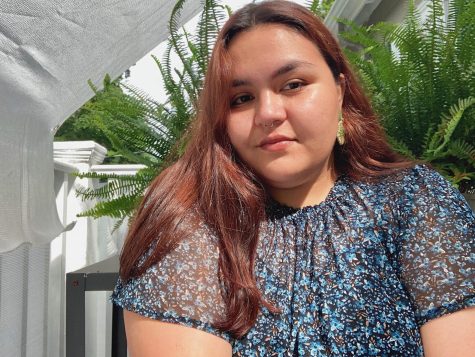
Email Brianna at [email protected] or follow them on Twitter @brisilvv

